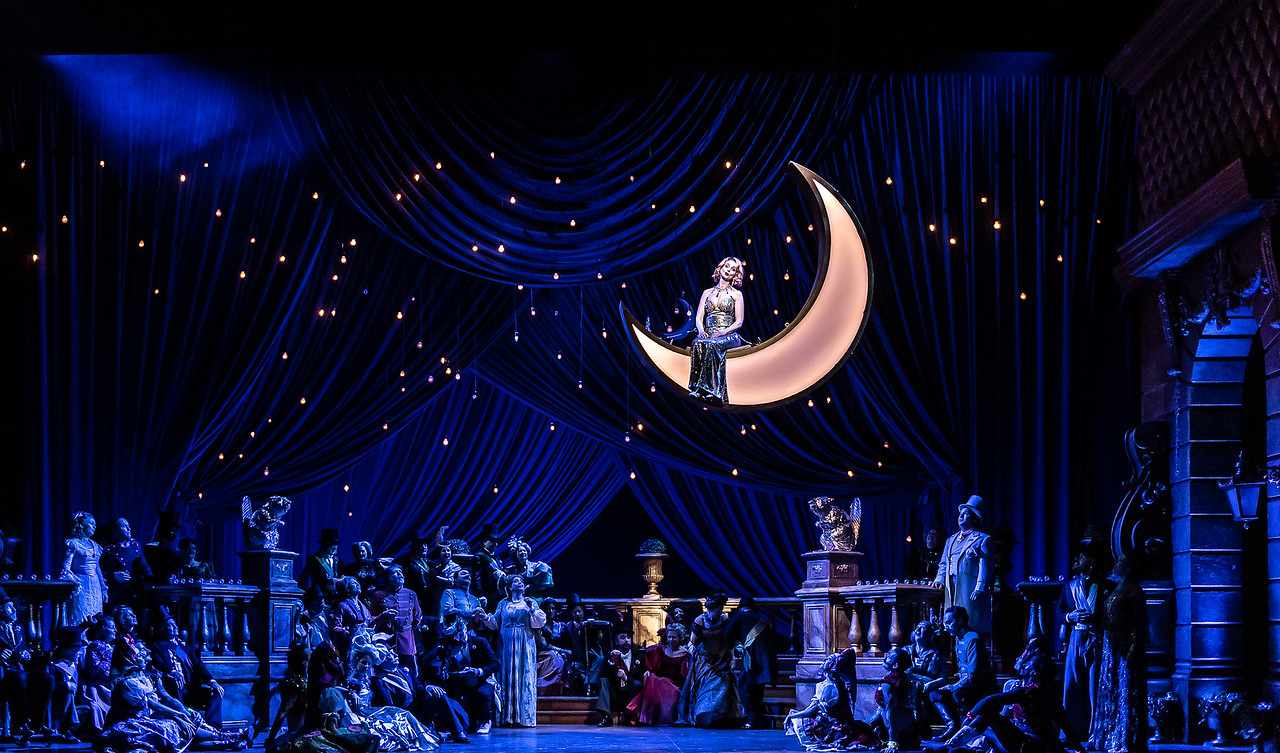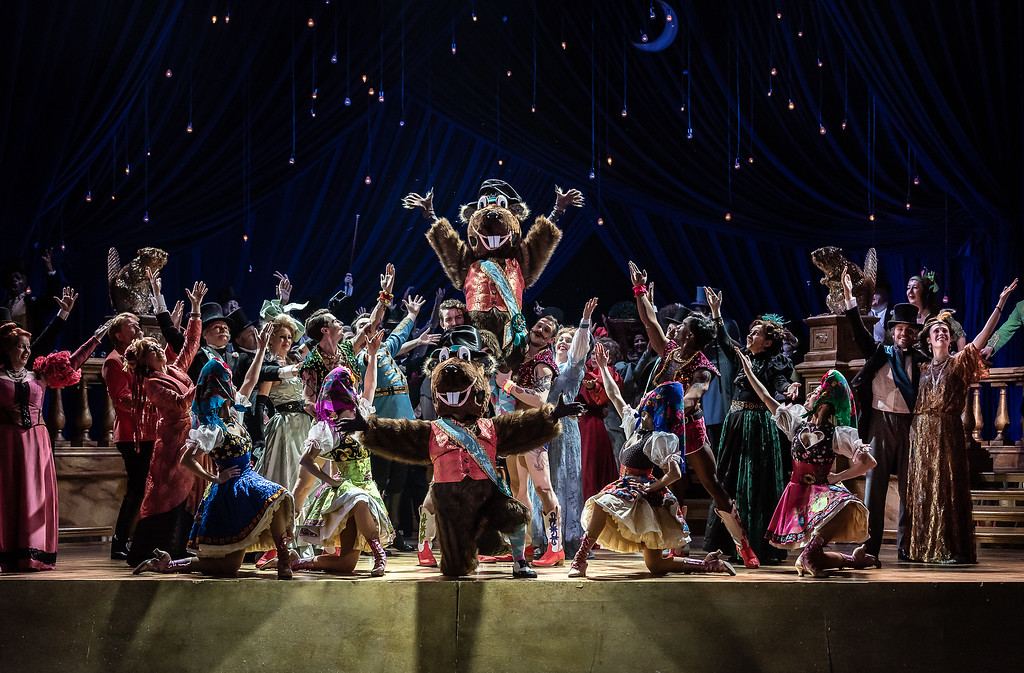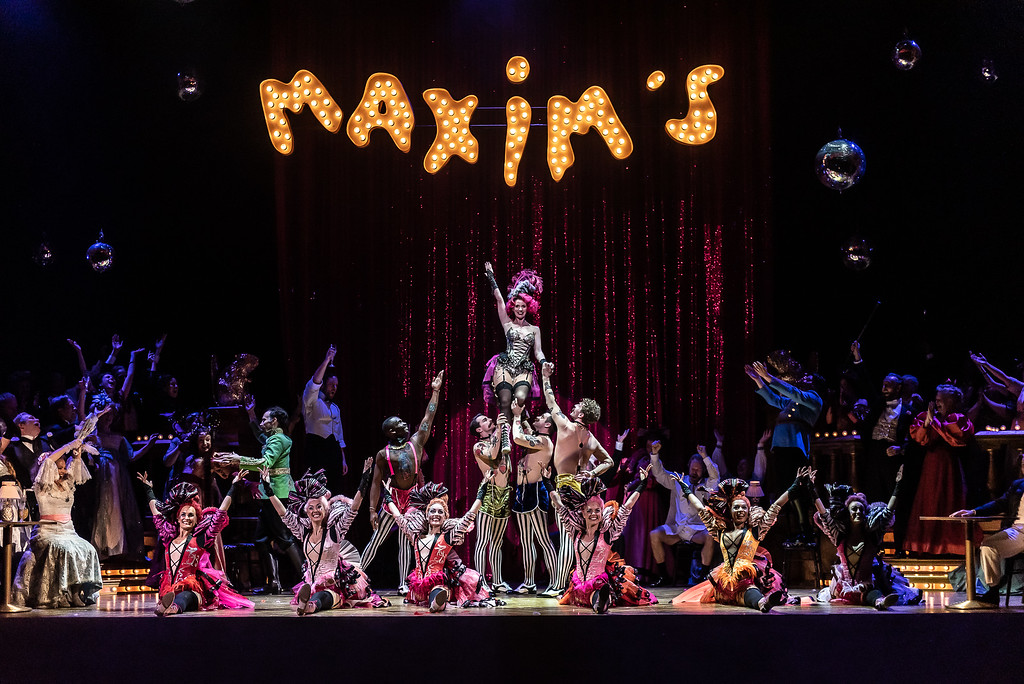London Coliseum, Friday 1 March 2019
No-one could surely doubt that The Merry Widow is a masterpiece but in recent years I can’t recall a production which did it justice. At last, we have one. In one way this is a refreshingly old-fashioned approach. Solid naturalistic sets, sensitively lit to reflect the shifting emotions, and costumed in a way which is securely Edwardian even if it drifts comfortably out of period when it needs to. But the other side is a master-stroke. The new book and lyrics by April De Angelis and Richard Thomas are the best we have heard for many years and surely on a par with Ira Gershwin and Cole Porter. There are so many felicitous lines, and ones that spin so easily with the music that this should become the accepted version for many years to come. The jokes come thick and fast but are always within the context of the action and any apparent reflections on Brexit are quickly picked up by the willing audience.
The work is cast from strength with Sarah Tynan a riveting Hanna Glawari. This is no genteel aristocrat but a woman who has seen difficult days and worked her way up. For once, her ability to dance as well as the Grisettes seems quite feasible, and her rendition of Vilja perched high above on a crescent moon was a moment worthy of Busby Berkeley. Her relationship with Nathan Gunn’s Danilo is also more complex. There seems to be a strong back story here and I can’t recall before being so aware of how close the relationship is to Beatrice and Benedick in Much Ado About Nothing. They care deeply but are never in a position to disclose it, even in the mixed social setting which Max Webster’s production creates. Not until they get to the point where money can be ignored can love begin to flourish.
The other romantic interest – Rhian Lois’ forceful Valencienne and Robert Murray’s Camille – are more obviously physical than usual and she takes the lead where he might hang back. Andrew Shore’s Zeta is the connecting link between the two couples and shines as ever with his comic timing as well as his credibility.
The dancers are nicely over the top and the Maxim’s scene hints towards Cabaret in a not unpleasing fashion. There is decadence here as well as potential debauchery. The ENO chorus provides many of the smaller roles and proves once again what a depth of talent is available. In the pit Kristiina Poska drives a sparkling account of the score which never drops for a second.
Though it has not happened recently, could a west-end transfer be in the offing? Audiences who flock to 42nd Street would surely love this and I assume ENO would not begrudge the extra income?



